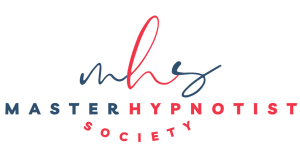ABOUT THE FOUNDERS
The McFall family was already involved in holistic and alternative care prior to Scott’s generation. His grandfather, a Palmer graduate Dr. Of Chiropractic and Ruth, his grandmother, were students of both Harry Arrons and Dr. Thermond Fleet, author of Rays of the Dawn who created concept therapy. These early foundations set up the realization that mind-body integration was extremely important to perception of life around us and the body’s response to mood/stress. So as Scott spent 8 years in summer stock growing up, memorizing scripts and acting on them, he was allowed to learn in an action environment. The emphasis on that environment far outweighed academics during those years.
Scott bounced around programs in college from MSU to BSC but didn’t take much seriously academically until the American Institute of Hypnotherapy program with Al Krasner and his staff (California state licensed academic program at the time). Scott finished that program in 1993. The most important aspect of this program is respect for many different approaches to the discipline of hypnosis. During these years Scott trained on both coasts, internationally, and became certified at the highest levels in NLP and many aspects of physical body work. He did every workshop he could get to, including cadaver labs and physiology workshops. He built a network of referring physicians and mental health professionals. He studied eastern philosophy and martial arts all while touring as a speaker and running the clinics. You may find the experimentation and elimination of fluff from techniques and theories quite useful in your training in hypnosis or NLP with MHS.
Early skill and insight additions to the process
- Method acting as a learning style and its’ distinction from deductive reasoning
- Experience-based understanding of altered states
- Demonstrational hypnosis and it’s more a dramatic impact on the subject than in the office
- Working in teams at Oldenberg Clinic for integrative health care insight
- Understanding of the dangers of regression and false memory, creating a new approach to reframing the interpretation of the past, rehearsal of new skills and insights and actions in the clients life as the primary evidence of successful outcomes instead of self-reported feelings alone.
- Establishing the outcome of extreme deductive reasoning brains that present for training learning to use inductive reasoning and respect it. Giving those people the ability to see where comfort with variables is much more important than logic and proven constants as a security blanket when perceiving the world around us.

